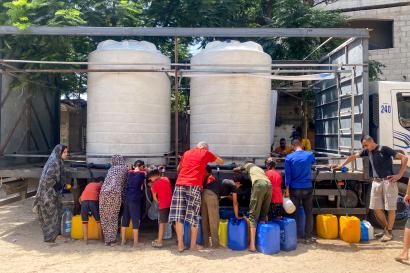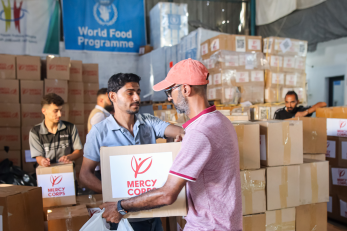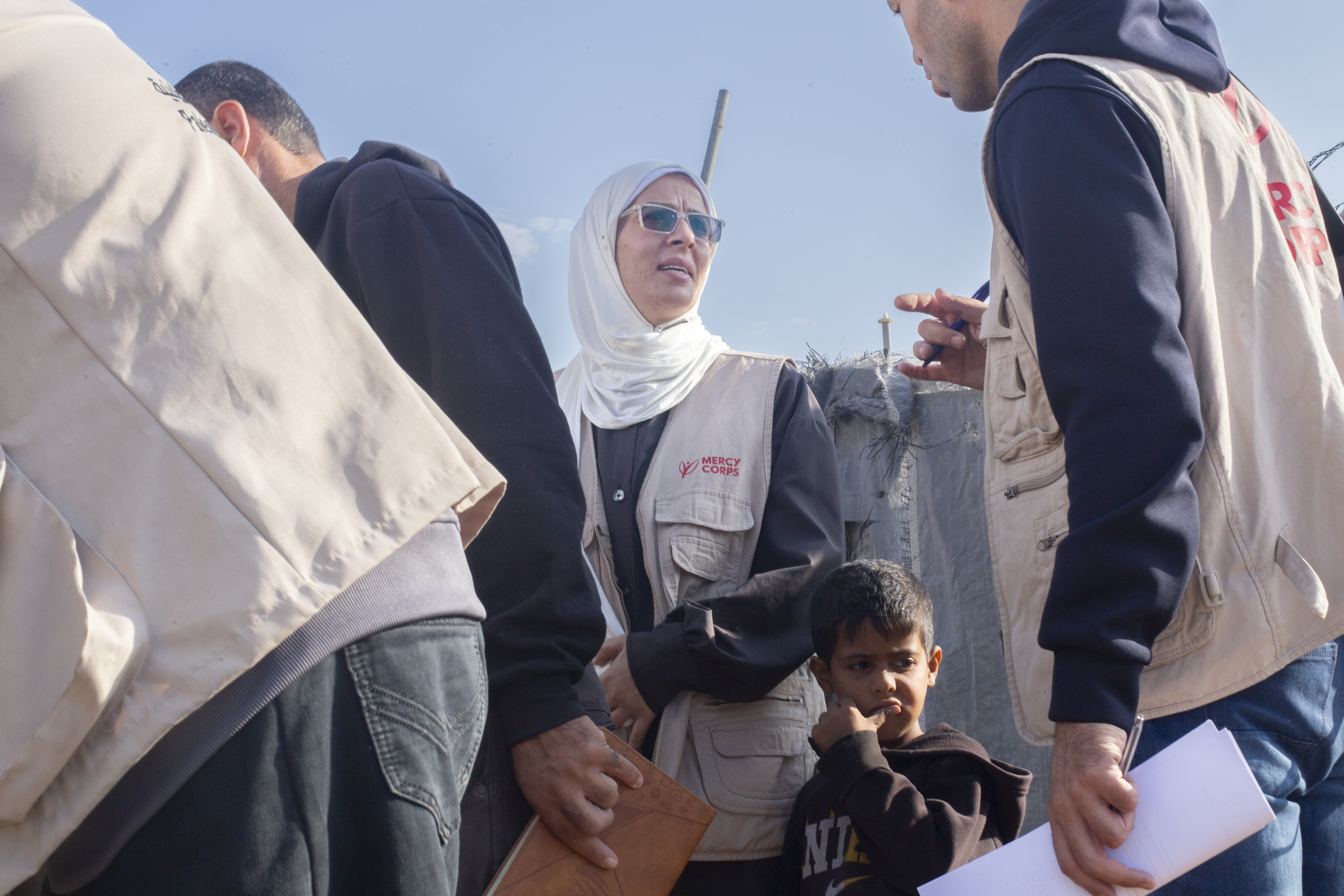Breadcrumb
Palestine (West Bank/Gaza)

Since 1986, Mercy Corps has helped Palestinians in the West Bank and Gaza access critical services and become economically self-sufficient.
The context
The escalation of conflict that began in October 2023 has sharply exacerbated the humanitarian crisis in the region. After two years of widespread and systematic bombardment, forced displacement, and man-made famine over 66,000 Palestinians have been killed and an estimated 1.9 million people are internally displaced in Gaza.
Over 90% of homes in Gaza have been damaged or destroyed, leaving the vast majority of families without permanent shelter. Many are seeking refuge in tents or makeshift shelters that provide little safety or dignity. Access to life-saving medical services is severely limited, with almost half of Gaza’s 36 hospitals only partially functional, understaffed, and lacking essential supplies.
Aid and food supplies are actively blocked, nearly the entire population is hungry, and malnutrition is surging. Children are at greatest risk, with 26,000 children requiring treatment for acute malnutrition. The humanitarian catastrophe is the result of prolonged restrictions on aid, the destruction of essential food, health, water systems, and years of bombardment.
Mercy Corps remains steadfast in our call for a ceasefire. Only a sustained ceasefire and an end to the siege coupled with the massive scale-up of humanitarian aid can prevent continued civilian death and destruction in Gaza. Until then, we’ll continue to use our voice, experience, resourcefulness, and partnership with peers and supporters to find ways to deliver relief.
Our impact
Palestine’s long-standing humanitarian crisis is among the world’s most challenging places to deliver humanitarian assistance. Today, more than 2.7 million Palestinians are in need of humanitarian aid. High levels of food insecurity, poverty, and chronic unemployment are some of the challenges that Palestinians face.
For more than three decades, Mercy Corps has worked in the West Bank and Gaza, meeting critical humanitarian needs. Our programs support Palestinian communities by:
Helping communities cope with crisis
Despite the difficulties and uncertainty in delivering aid to Gaza, Mercy Corps has partnered with local organizations to deliver food and hygiene kits to thousands of families in areas where it is safe to distribute supplies. Mercy Corps has also provided electronic cash assistance so families may purchase the essential items that are available, though provisions are limited and expensive. Many humanitarian organizations have not been able to deliver support into Gaza safely or consistently due to relentless hostilities, active restrictions on aid, and logistical barriers.

Mercy Corps is committed to finding solutions that give people more options and resources to meet their immediate needs, become more self-reliant, and be more resilient to future challenges. In the years since the conflict began in October 2023, Mercy Corps has provided support to 385,000 people in Gaza. Mercy Corps will do all we can to continue providing assistance now to save lives and, when peace is achieved, to help rebuild lives and communities.
Delivering clean and safe water to displaced communities
Since June 2025, Mercy Corps has been working with local partner organization, Palestine Environmental Friends, to deliver clean water to households living in camps for displaced people. Access to safe drinking water is a necessity and is essential to prevent diseases.
Every day in central Gaza, Mercy Corps delivers clean water to an average of 800 households (approximately 4,000 individuals) in Deir al-Balah. We’re prioritizing water trucking since much of the water and sanitation infrastructure has been destroyed. But the scale of need far outpaces what little we can provide.
Increasing economic opportunities
Prior to October 2023, Palestine’s tech sector supported thousands of freelancers, startups, and outsourcing companies. The ongoing crisis, which has overwhelmed every aspect of daily life, has affected the tech industry due to blocking of electricity and internet access, in addition to the lack of security. Intense bombing has destroyed infrastructure like roads, homes, and offices, forcing people to flee without access to housing and workspaces. Workers in Palestine—who had already faced restrictions in movement, goods, and funds prior to October 2023—had found increased livelihood opportunities in the information and communications technology sector due to the nature of remote work. They are now facing limited options and risk losing their livelihoods.
At Gaza Sky Geeks, which was launched in collaboration with Google for Startups in 2011, the team has seen firsthand the impact of tech in helping Gazans regain a sense of normalcy and self-sufficiency. Gaza Sky Geeks prepares young Palestinians to work in the global tech sector by training coders, linking freelancers to international markets, and creating a pipeline of early-stage startup companies that can compete regionally. Technology will be key to reviving the Gazan and Palestinian economy once a permanent ceasefire is achieved.


